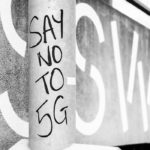 While it’s tempting to think that COVID-19 has transformed our societies and ways of life in fundamental ways, but the reality is that it has largely exacerbated trends that were already in place before the pandemic. New research from King’s College London highlights how this has largely been the case with misinformation.
While it’s tempting to think that COVID-19 has transformed our societies and ways of life in fundamental ways, but the reality is that it has largely exacerbated trends that were already in place before the pandemic. New research from King’s College London highlights how this has largely been the case with misinformation.
The researchers highlight how misinformation has been widely cited as a threat to liberal democracy, and has been blamed for not only the rejection of vaccines and climate science, but the Brexit vote and the election of Donald Trump. The researchers attempted to understand how misinformation is evolving during COVID.
They believe that the pandemic has provided an opportunity to clearly link misinformation with people’s behaviors, with this especially damaging when misinformation is deliberately spread.
Tackling the infodemic
In the early days of the pandemic, the World Health Organization declared an “infodemic”, with misinformation causing people to act in ways that harmed their health, such as the 700 people who died in Iran after reported taking methanol in the belief that it would cure the virus. The UK saw 5G phone masts vandalized after rumors spread that it caused the virus to spread, while sales of drugs such as paracetamol boomed after it was linked with treatment of the virus.
Using these examples as a guide, the researchers attempted to track the spread of disinformation through society. They suggest that the likelihood of information registering with people is largely regulated by whether they’re interested in the topic and trust the source. As such, they believe that disinformation might actually be best tackled via additional media coverage.
Indeed, despite social media being commonly blamed for the spread of disinformation, the researchers argue that this causes us to overlook the role played by domestic political actors. They highlight how political leaders, and even scientists, in some countries have made misleading claims about the virus, and the cures for it. Even the selective use of statistics can mislead the population.
“Disinformation spreads through the interaction of many different information sources, not just social media,” the researchers explain. “For British people, disinformation on social media may not even be the biggest issue. They overwhelmingly distrust social media news and rarely share it. Research shows they see disinformation from politicians and traditional media as more common and concerning.”
Counter-disinformation
The researchers believe that effective counter-disinformation will require us moving beyond simply focusing on social media and external actors, as often, the misinformation is actually spread by local political actors via traditional media.
As such, they believe that COVID-19 will underline the importance of a more multidimensional and nuanced approach to our understanding of disinformation, and particularly our appreciation that a range of actors are involved in its spread, including scientists and politicians.
In terms of the impact of disinformation on society, they believe that despite the surge in research into the topic, more work is needed, especially in terms of its impact on social cohesion and how it spreads offline between people.